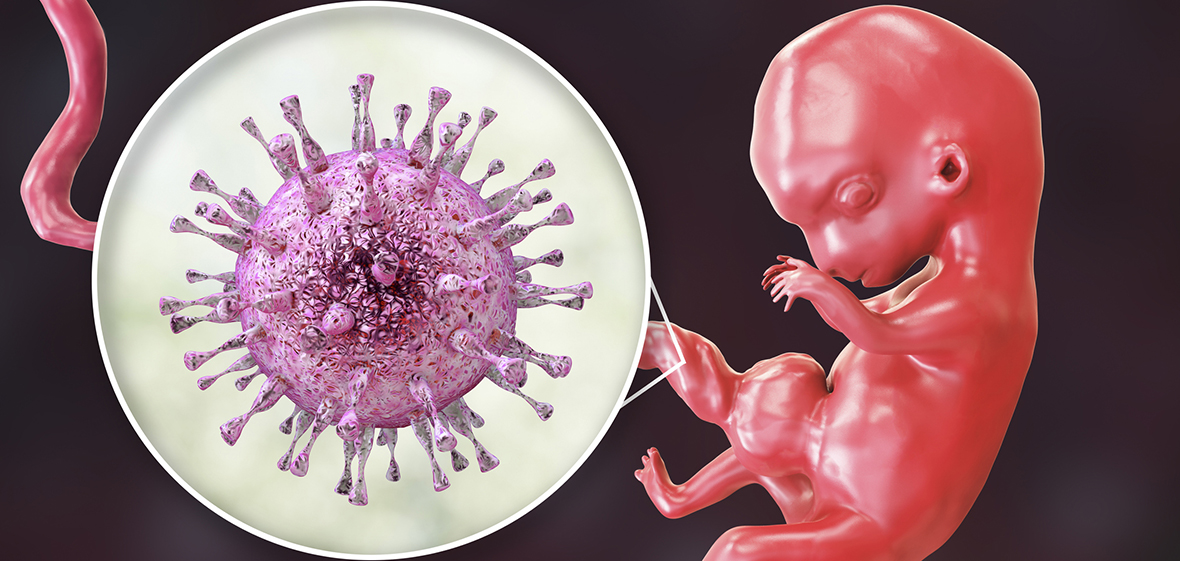
More than 50% of people have been infected with cytomegalovirus (CMV) by the time they turn 40 years old, according to the Centers for Disease Control and Prevention. CMV is extremely common and usually results in no symptoms, although it is possible for the virus to cause pregnancy loss in pregnant women.
Congenital CMV is when a baby has a CMV infection at birth. Congenital CMV occurs in approximately one in 200 births and is the most prevalent infectious cause of birth defects in the U.S. Congenital CMV can be more concerning, since around 20% of newborns with the virus will have health issues that last long term.
Symptoms
Some cases of congenital CMV result in no symptoms. However, some newborns with the virus may have:
- Damaged retinas in their eyes
- Seizures
- Enlarged spleen and liver
- Low birth weight
- Small head
- Yellow skin or whites of the eyes
- Rash
Some of these symptoms can result in long-term health concerns, including reduced vision or hearing, or motor and developmental delays.
How Can a Newborn Get Congenital CMV?
If you are pregnant, it is possible to pass CMV to your baby in the womb without knowing you are infected. If you have or work with young children, you are more likely to get infected with CMV. Even when young children have known cases of CMV, they can be contagious months later because the virus can live in saliva and urine long term.
Tips to Lower Your Risk of CMV
To lessen the risk of contracting CMV if you are pregnant, you can:
- Wash your hands with soap and water after helping a child in the bathroom or after diaper changes.
- Avoid sharing cups, utensils or food with children.
Diagnosis and Treatment of Congenital CMV
Congenital CMV is usually diagnosed in a newborn by performing a blood, saliva or urine test two to three weeks after birth. Also, congenital CMV can sometimes have abnormalities in a fetal ultrasound. Additional testing may be offered during pregnancy if there is suspicion of infection for the fetus.
If congenital CMV is found in your newborn, there is a chance hearing loss and developmental delays could be prevented with antiviral medications, such as valganciclovir. However, antiviral medications can have concerning side effects, so make sure to discuss this treatment option with your newborn’s medical provider.
UofL Physicians – Maternal-Fetal Medicine, part of UofL Physicians – OB/GYN & Women’s Health, is here to support you and your baby before, during and after pregnancy. Call 502-588-4400 to schedule an appointment.









